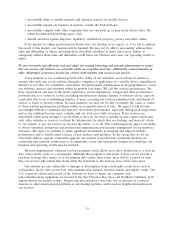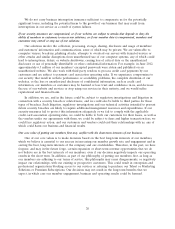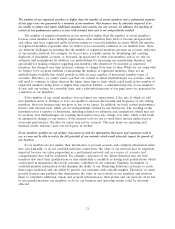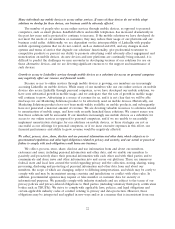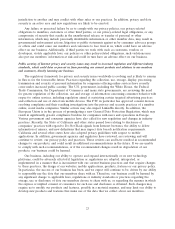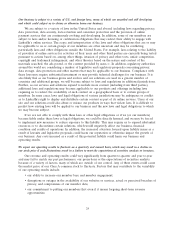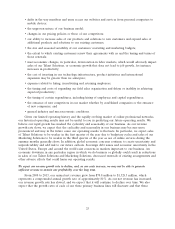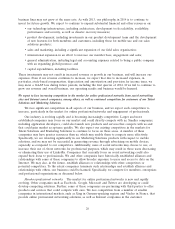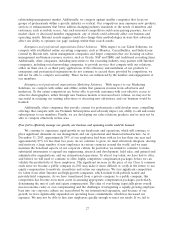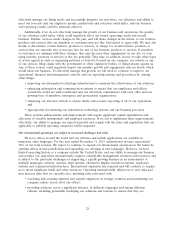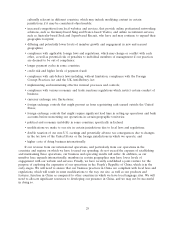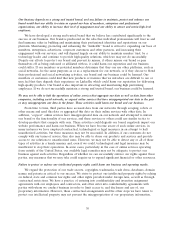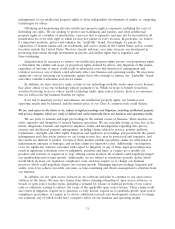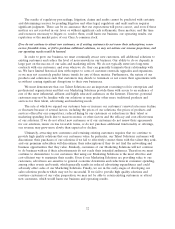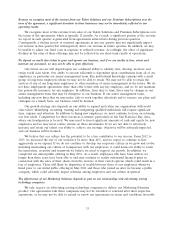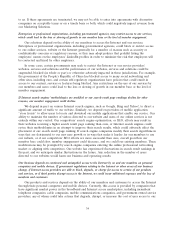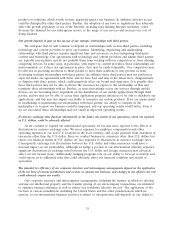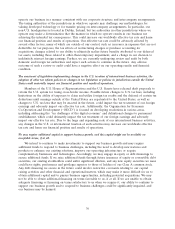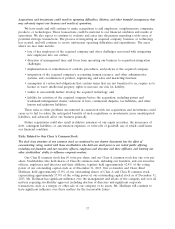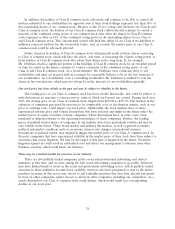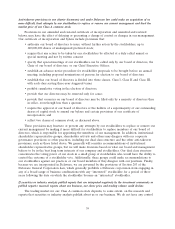LinkedIn 2013 Annual Report Download - page 31
Download and view the complete annual report
Please find page 31 of the 2013 LinkedIn annual report below. You can navigate through the pages in the report by either clicking on the pages listed below, or by using the keyword search tool below to find specific information within the annual report.culturally relevant in different countries, which may include modifying content in certain
jurisdictions if it may be considered objectionable;
• increased competition from local websites and services, that provide online professional networking
solutions, such as Germany-based Xing and France-based Viadeo, and online recruitment services,
such as Australia-based Seek and Japan-based Recruit, who have and may continue to expand their
geographic footprint;
• differing and potentially lower levels of member growth and engagement in new and nascent
geographies;
• compliance with applicable foreign laws and regulations, which may change or conflict with each
other, as well as potential risk of penalties to individual members of management if our practices
are deemed to be out of compliance;
• longer payment cycles in some countries;
• credit risk and higher levels of payment fraud;
• compliance with anti-bribery laws including, without limitation, compliance with the Foreign
Corrupt Practices Act and the UK Anti-Bribery Act;
• implementing and maintaining effective internal processes and controls;
• compliance with various economic and trade sanctions regulations which restrict certain conduct of
business;
• currency exchange rate fluctuations;
• foreign exchange controls that might prevent us from repatriating cash earned outside the United
States;
• foreign exchange controls that might require significant lead time in setting up operations and bank
accounts before monetizing our operations in certain geographic territories;
• political and economic instability in some countries, specifically in Ireland;
• modifications we make to our site in certain jurisdictions due to local laws and regulations;
• double taxation of our non-U.S. earnings and potentially adverse tax consequences due to changes
in the tax laws of the United States or the foreign jurisdictions in which we operate; and
• higher costs of doing business internationally.
If our revenue from our international operations, and particularly from our operations in the
countries and regions on which we have focused our spending, do not exceed the expense of establishing
and maintaining these operations, our business and operating results will suffer. In addition, as our
member base expands internationally, members in certain geographies may have lower levels of
engagement with our website and services. Finally, we have recently established a joint venture for the
purpose of exploring the expansion of our operations in the People’s Republic of China, which is in the
early stages. We will need to ensure that our business practices in China are compliant with local laws and
regulations, which will result in some modifications to the way our site, as well as our products and
features, function in China as compared to other countries in which we have local language sites. We will
need to allocate significant resources to developing our presence in China, and we may not be successful
in doing so.
29


